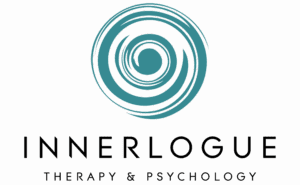Sexual Trauma Counselling in Calgary: Healing at your own pace
Sexual trauma is a deeply distressing experience that leaves lasting wounds—both physical and emotional. According to the World Health Organization, nearly one in three women worldwide experiences sexual violence in her lifetime, and men are affected as well. Yet, fewer than 10% of survivors speak out, often due to fear, shame, or not knowing that help is available.
For many survivors, the psychological impact can be as painful as the event itself—and sometimes even more enduring.
At Innerlogue Therapy and Psychology, we believe that healing is possible, no matter where you are on your journey. Therapy doesn’t erase what happened, but it can help transform the pain, rebuild a sense of safety, and help you reclaim your voice.

Understanding the Impact of Sexual Trauma
We understand how overwhelming the aftermath of trauma can feel. Every breath, every day, can seem like a battle. The impact of sexual trauma touches everything—your body, your heart, your thoughts. It can affect every area of your life:
- Intense or conflicting emotions: fear, shame, anger, confusion, sadness, or guilt.
- Sleep disturbances: insomnia, nightmares, difficulty falling or staying asleep.
- Hypervigilance: feeling constantly on edge, exaggerated startle responses, general mistrust.
- Dissociation: Feeling disconnected from your body or emotions, like you’re moving through fog.
- Social withdrawal: pulling away from relationships, feeling misunderstood or alone.
- Flashbacks: sudden, vivid memories or sensations related to the trauma.
It’s important to say this clearly: none of these reactions are abnormal. They are natural responses to something deeply unnatural. What you’re feeling is not a sign of weakness—it’s your body and heart’s way of trying to protect you from harm.
At Innerlogue, we know that even speaking about healing can feel impossible when you’re just trying to survive. That’s why we go at your pace, honoring every small victory: a slightly calmer night, a softer trigger, a moment where you felt a little more present.
How Therapy Helps Rebuild Your Life
After sexual trauma, silence often takes hold like a heavy cloak. It’s fed by shame, fear of not being believed, and pressure to “move on.” But silence can become a burden that exhausts and isolates. You don’t have to carry it alone.
Therapy offers a safe and compassionate space—one where you can pour out your feelings at your own pace without judgment. Simply having one person who listens and understands what you’re going through can be a powerful first step forward.
Working with a trained professional can help you:
- Be heard and supported without judgment
- Let go of self-blame and internalized guilt
- Learn tools for emotional regulation
- Rebuild trust—in yourself and others
- Prevent retraumatization and setbacks
- Reconnect with your body and sexuality
- And most importantly, know that you are not alone.
At Innerlogue Therapy and Psychology, our therapists welcome every person with respect, compassion, and confidentiality. There is no pressure, no agenda—only a kind, personalized support focused entirely on you.
What You Can Expect from Therapy
Therapy after sexual trauma is not one-size-fits-all. It depends on your story, your needs, and your pace. Here are a few of the approaches we may use:
Trauma-Focused Cognitive Behavioral Therapy (CBT)
The Trauma-Focused Cognitive Behavioral Therapy (CBT) approach helps identify and shift harmful thoughts and beliefs related to the trauma (e.g., “I’m broken,” or “It was my fault”) and replace them with healthier, more accurate ones. CBT may also include gradual exposure to help reduce avoidance and flashbacks.
EMDR (Eye Movement Desensitization and Reprocessing)
EMDR is a well-known method for trauma recovery. Through guided eye movements, the brain processes and “digests” traumatic memories, helping to store them in the past rather than relive them in the present. Many survivors report lasting relief through this method.
Emotion- and Body-Centered Therapies
Trauma doesn’t only live in the mind—it lives in the body. That’s why we may integrate somatic techniques, mindfulness, or emotional regulation strategies to gently reconnect you to your body in a safe, supportive way.
Feminist and Empowerment-Based Approaches
We recognize that sexual trauma often stems from power dynamics and systemic inequality. Some of our therapists use feminist frameworks that center on your autonomy, validate your lived experience, and focus on reclaiming your personal power.

You Are Not Alone
Healing from sexual trauma takes courage. But no one should have to go through it alone. At Innerlogue Therapy and Psychology, we offer a safe, non-judgmental, and professional space to support your healing.
If you feel the time is right for therapy, we invite you to contact us and schedule a session with one of our trauma-friendly therapists. Together, we can move forward step by step.
Remember that what happened to you does not define who you are. You are still, and always have been, a worthy, radiant human being. And we’re here to help you rediscover your joy and build a future filled with peace and purpose.
Common Questions Regarding Sexual Trauma Therapy
- Do I need therapy after experiencing sexual trauma?
If you’re feeling distress, confusion, anxiety, or if parts of your life are being affected (like sleep, trust, or relationships), therapy can help. Even if the trauma happened long ago, it’s never too late to seek support.
- Is therapy confidential?
Yes. Everything you share is protected by professional confidentiality, except in rare cases where there is a serious risk of harm. - Do I have to talk about everything?
Not at all. You’re in control of what you choose to share and when. You never have to tell your story before you’re ready.





